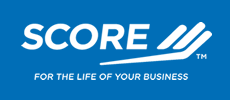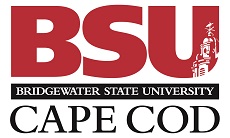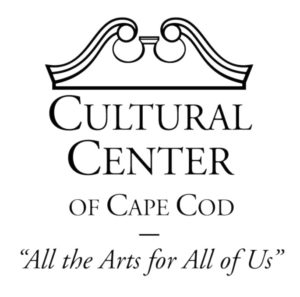Students can now explore ancient shipwrecks, study marine science, dive into America’s maritime history and relive the Golden Age of Piracy – all without leaving their homes.
The Center for Historic Shipwreck Preservation (Shipwreck Center for short) launched a new online learning program in April, using the expertise and archaeological treasures of the Whydah Pirate Museum in Yarmouth. The project, which is up and running but still being expanded and refined, was prompted in part by the COVID-19 pandemic.
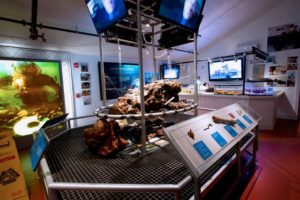
Brandon Clifford, executive director of the nonprofit Shipwreck Center, said education has always been a big part of the organization’s mission, but the virtual learning program was created after public schools shut down in March due to the novel coronavirus pandemic. He said he helped set up remote classrooms for the Laurel School in Brewster, where his daughter is a student.
“After watching my daughter and her classmates become separated, I just felt inclined to do something positive and help out in any way that I could,” he said. And that work led to the bigger project.
“We realized that we could potentially reach, hundreds or thousands of students online across the country and connect them this with this really unique history of pirates,” Clifford said in a telephone interview.
In addition to pirate history, the virtual learning program will cover a wide range of ocean-related topics, he explained. Lessons will reach students in kindergarten through 12th grade, with two categories – history and STEM (science, technology, engineering and math). The center also provides lesson plans and educator guides – all approved for Massachusetts schools, Clifford said.
Treasures from Whydah Bring Lessons to Life
Brandon Clifford is the son of undersea archaeological explorer Barry Clifford, who discovered the Whydah Gally shipwreck in 1984 and founded the Whydah Pirate Museum in West Yarmouth. The Shipwreck Center is independent from the pirate museum, with its own projects, research, resources and multimedia content, but Brandon Clifford’s ties to the museum and his father’s exploits help the center enhance its online classes with centuries-old artifacts recovered from the Whydah.
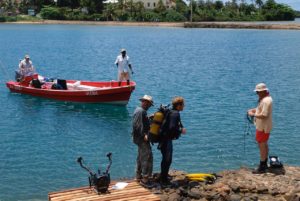
“As time goes on, we’ll be able to do virtual field trips to a dive site,” he explained. Clifford envisions future explorations with “a camera out on a boat and a class being able to log on and join us for 45 minutes out on the ocean – watching how we set up our surveys and watching divers come out of the water with real pirate artifacts .”
The Whydah, a 100-foot slave ship that had been commandeered by pirate Samuel “Black Sam” Bellamy, was bound for Maine with a load of treasure when it sunk in a storm in 1717, killing Bellamy and all but two of his 146-member crew. Explorer Barry Clifford discovered the wreck near Wellfleet’s Marconi Beach in 1984, and more than 35 years later, the Whydah remains the only authenticated pirate shipwreck ever to be recovered.
The Whydah site remains a work in progress with new diving expeditions every year. Researchers are still discovering artifacts that reveal not only clues to the life of pirates, but also to the slave trade and everyday life in the 18th century, Brandon Clifford said. Three years ago, divers found some 600 manillas – copper bracelets used as currency in the slave trade. Crews also discovered a small cannon that was most likely used as a chase gun on the Whydah, and explorers hope the latest discoveries will lead them to the ship’s stern.
The wreck site is scattered on the sandy bottom roughly 1,000 feet out in the ocean, Clifford said, owing to 300 years of storms and waves eroding Cape Cod’s shoreline at a rate of roughly 3 feet per year. Explorers theorize that the Whydah broke apart in the waves and the stern drifted away.
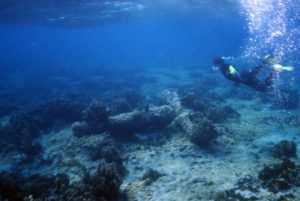
In addition to the Whydah Gally, classes will explore other shipwrecks, Clifford said. Teams led by his father plied the water off Madagascar’s coast near the island of Sainte Marie (aka “Pirate Island”) and found a half-dozen wrecks, including one that was tentatively identified as Captain Kidd’s Adventure Gally. They also searched for the Santa Maria, Columbus’s flagship, and worked on the northern and southern coasts of Haiti, looking for Captain Henry Morgan’s ship, the Oxford.
“We are going to use all our projects as examples,” Clifford said. “We’ll look at artifacts from various shipwrecks, and as things progress, we’re going to include more classes and more guests and create more virtual field trips.”
Membership, Donations and Lessons
The Shipwreck Center is using CrowdCast for its webcast platform and raising money with Patreon.com – a web-based program used by artists, educators, writers and other creators to engage members and raise money for projects. CrowdCast integrates well with Patreon, Clifford said, allowing group questions and answers, which is well suited for a classroom environment.
The Shipwreck Center’s website contains links to the virtual education program, along with pricing and program descriptions in three membership tiers – student, family and home-schooling, and schools and classes.
Clifford says the virtual learning program currently has two Massachusetts schools enrolled, along with some student and family memberships. An April 30 webcast on the value of preserving history with expedition archaeologist and conservator Sophia Morong, was attended by roughly 60 students, he said.
Clifford is now hoping to expand the service beyond Cape Cod and Massachusetts to share the fascinating stories of Atlantic pirates.
“You know, essentially we’re storytellers,” he explained. “We’re looking for shipwrecks but we’re following stories. And we really look forward to sharing the experience with as many as possible.”
Yarmouth Chamber of Commerce blogger Andy Tomolonis is a multimedia producer, award-winning journalist and author.




